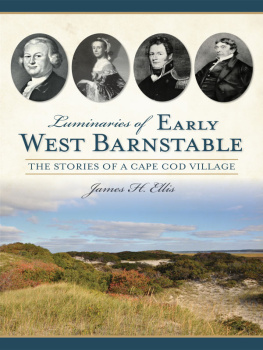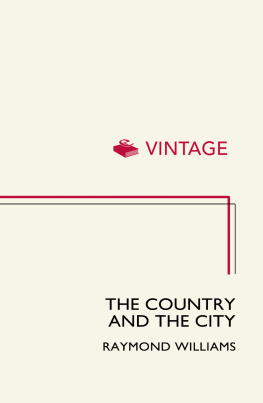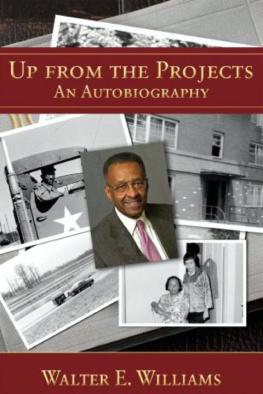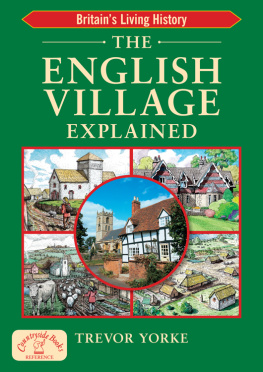Routledge Library Editions
A WEST COUNTRY VILLAGE ASHWORTHY
ANTHROPOLOGY AND ETHNOGRAPHY
Routledge Library Editions
Anthropology and Ethnography
FAMILY & KINSHIP
In 7 Volumes
I | Three Styles in the Study of Kinship | Barnes |
II | Kinship and the Social Order | Fortes |
III | Comparative Studies in Kinship | Goody |
IV | Elementary Structures Reconsidered | Korn |
V | Remarks and Inventions | Needham |
VI | Rethinking Kinship and Marriage | Needham |
VII | A West Country Village: Ashworthy | Williams |
A WEST COUNTRY VILLAGE ASHWORTHY
Family, Kinship and Land
W M WILLIAMS
First published in 1963
Reprinted in 2004 by
Routledge
2 Park Square, Milton Park, Abingdon, Oxon, OX14 4RN
Transferred to Digital Printing 2009
Routledge is an imprint of the Taylor & Francis Group
1963 W. M. Williams
All rights reserved. No part of this book may be reprinted or reproduced or utilized in any form or by any electronic, mechanical, or other means, now known or hereafter invented, including photocopying and recording, or in any information storage or retrieval system, without permission in writing from the publishers.
The publishers have made every effort to contact authors/copyright holders of the works reprinted in Routledge Library EditionsAnthropology and Ethnography. This has not been possible in every case, however, and we would welcome correspondence from those individuals/companies we have been unable to trace.
These reprints are taken from original copies of each book. In many cases the condition of these originals is not perfect. The publisher has gone to great lengths to ensure the quality of these reprints, but wishes to point out that certain characteristics of the original copies will, of necessity, be apparent in reprints thereof.
British Library Cataloguing in Publication Data
A CIP catalogue record for this book is available from the British Library
A West Country Village: Ashworthy
ISBN 0-415-32556-0 (set)
ISBN 0-415-33014-9
Miniset: Family & Kinship
Series: Routledge Library Editions Anthropology and Ethnography
A WEST COUNTRY VILLAGE ASHWORTHY
Family, Kinship and Land
by
W. M. WILLIAMS
Senior Lecturer in Geography, University of Keele
First published 1963
by Routledge & Kegan Paul Limited
Broadway House 6874 Carter Lane
London, E.C.4
Printed in Great Britain
by Cox & Wyman Limited
London, Fakenham and Reading
W. M. Williams 1963
No part of this book may be reproducedin any form without permission fromthe publisher, except for the quotationof brief passages in criticism
To Nipper
and the people of Ashworthy
CONTENTS
Tables
Figures
A SHWORTHY is a pseudonym for a small rural community in the West Country. Sociologists working in Britain have learnt the somewhat painful lesson that their studies bring unwelcome and often sensational publicity from certain national newspapers, which offends the many people who have helped them. For this reason, the identity of Ashworthy and of its people has been very carefully disguised. All the personal and place names used in this study are fictitious. All the dates, ages of individuals, sizes of farms and many other factual details have been systematically altered. Ashworthy is not a parish, although it is so described below, and the boundaries shown on the maps are not parish boundaries. All the maps and the statistical data refer to an area which is not an administrative unit. These changes have, however, been made in a way which retains the validity of the material for analytical purposes.
Ashworthy was chosen for study during a pilot survey made in the summer of 1957: the field work was carried out in the summer of 1958. The aim of the pilot survey was to find a community which would form a suitable base for the study of the effects of rural depopulation on family and kinship. It was therefore necessary to seek a community which had experienced a declining population for a relatively long period, at least a century: the community had to be large enough to make a study worthwhile and yet small enough to be intensively studied as a complete whole. A population of between five hundred and seven hundred inhabitants was taken to be a suitable size. An adequate collection of documents covering the recent history of the communityParish Registers, Tithe Awards, etc.was a prerequisite for study. It was also desirable that the community should be as free as possible from extraneous influences, such as those which might come from the presence of a large town or factory near by, or from an annual invasion of tourists. Remoteness was not in itself considered to be absolutely necessary, but it was essential that the community should be rural, that is, based on an agricultural economy.
Four communities were chosen which appeared at a distance to fit these requirements very closely. The first was rejected because, in fact, it did not: the second was suitable but seemed, on intuitive grounds, unpromising: the third was Ashworthy. The field work in the following year showed it to be an admirable choice; its people were remarkably kind, hospitable and helpful. It is not, however, in any sense a typical rural community; such a vague entity does not exist. This study is of one small area with its own special features: the generality of the conclusions which have been reached can only be tested by similar studies elsewhere.
The initial aim of the research was, then, to examine the effects of rural depopulation as a process on the structure of family and kinship within one small rural area. General studies had been made of rural depopulation, notably John Savilles Rural Depopulation in England and Wales 18511951,1 but almost nothing was known of its social effects in detail. In this respect the study was intended to break new ground. However, as the field work progressed, new and clearly important problems emerged which, while related to the original theme of the investigation, made it necessary to re-examine the basic orientation and underlying assumptions of the study and this led in turn to a complete re-appraisal of existing rural community studies in Britain.













